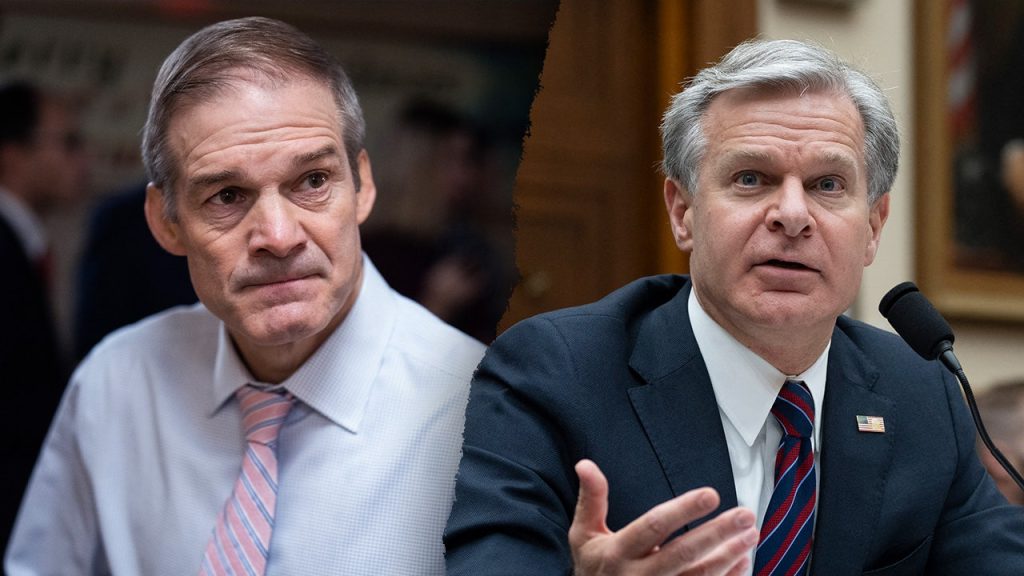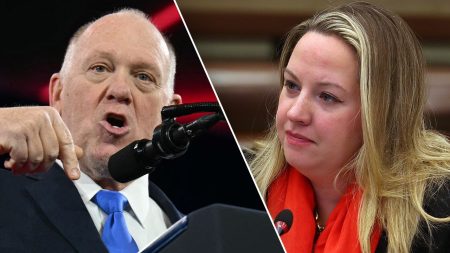Christopher Wray’s Resignation: A Turning Point for the FBI?
The announcement of FBI Director Christopher Wray’s resignation has sparked a wave of reactions, particularly from House Judiciary Committee Chairman Jim Jordan, a staunch critic of Wray’s leadership. Jordan celebrated the news, citing a litany of grievances against Wray, including investigations into parents at school board meetings, alleged targeting of pro-life Catholics, retaliation against whistleblowers, surveillance of congressional staff, and the raid on former President Trump’s home. Wray, during his tenure, denied these accusations, defending the FBI’s actions and asserting a commitment to the bureau’s mission. This difference in perspective highlights the deeply partisan nature of the debate surrounding Wray’s leadership and the FBI’s role in politically charged investigations.
Jordan’s strong criticism of Wray’s leadership reflects a broader concern among some Republicans regarding the politicization of the FBI. They argue that the FBI has been weaponized against conservatives, citing instances like the investigation into alleged Russian interference in the 2016 election and the handling of Hunter Biden’s laptop. These concerns, amplified by figures like Jordan, have contributed to a climate of distrust towards the FBI within certain segments of the population. Jordan’s vow to continue oversight, even after Wray’s departure, signals a determination to hold the FBI accountable and address what he perceives as systemic issues within the bureau.
Wray’s resignation, while anticipated following Trump’s nomination of Kash Patel as his replacement, raises questions about the future direction of the FBI. Wray, in his resignation statement, emphasized his desire to protect the FBI from further political entanglement, suggesting a concern about the bureau’s reputation and integrity. His departure opens the door for a new leader who will likely reshape the agency’s priorities and approach to investigations. Patel’s nomination, given his history and previous statements, suggests a potential shift towards a more conservative agenda within the FBI, potentially exacerbating existing tensions between the bureau and its critics.
The selection of Kash Patel as Trump’s nominee to lead the FBI further intensifies the political drama surrounding the bureau. Patel, a staunch Trump loyalist, has been vocal in his criticism of the "deep state" and has pledged to root out perceived corruption within government agencies. His nomination has been met with both enthusiasm from Trump supporters and apprehension from critics who view him as overly partisan and potentially detrimental to the FBI’s independence. Patel’s confirmation hearings are likely to be highly contentious, with senators closely scrutinizing his past actions and statements.
The transition of leadership at the FBI comes at a critical juncture for the agency. Facing accusations of political bias and internal dissent, the FBI is under intense scrutiny. The next director will face the formidable task of restoring public trust, navigating politically charged investigations, and maintaining the bureau’s integrity. The challenges ahead are significant, and the actions of the new director will have far-reaching implications for the future of the FBI and its role in American society. The ongoing oversight by figures like Jordan indicates that the FBI’s actions will continue to be closely monitored, ensuring that the debate surrounding the bureau’s conduct remains at the forefront of public discourse.
The controversy surrounding Wray’s tenure and the selection of his successor highlights the ongoing tension between the need for an independent law enforcement agency and the pressures of political influence. The FBI’s role in investigating politically sensitive matters inevitably draws scrutiny and criticism, particularly in a highly polarized political climate. Striking a balance between maintaining independence and responding to legitimate concerns about bias is a delicate balancing act that will continue to challenge the FBI’s leadership in the years to come. The future of the FBI hinges on its ability to navigate these treacherous waters and restore public confidence in its impartiality and commitment to upholding the law.










